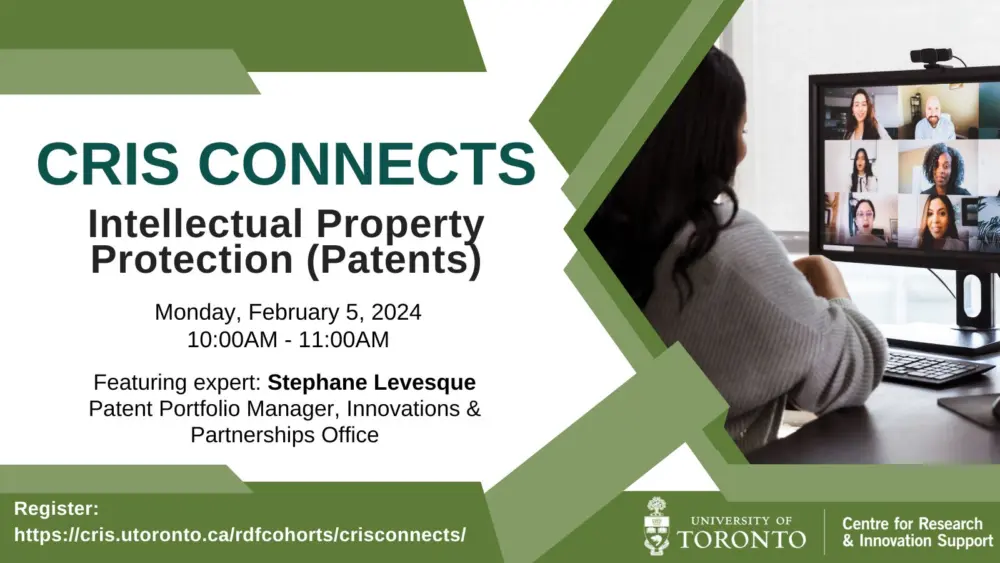IP Matters: The Chemical AI Revolution – Jan. 30, 2024
Uncovering Trends and Strategies for IP Protection Join a panel of IP lawyers, entrepreneurs, and representatives from the U of T Innovations & Partnerships Office (IPO) for a wide-ranging discussion about AI’s transformative impact in revolutionizing the landscape of chemical research and development. We will discuss the pivotal role tech transfer offices play in commercializing […]


